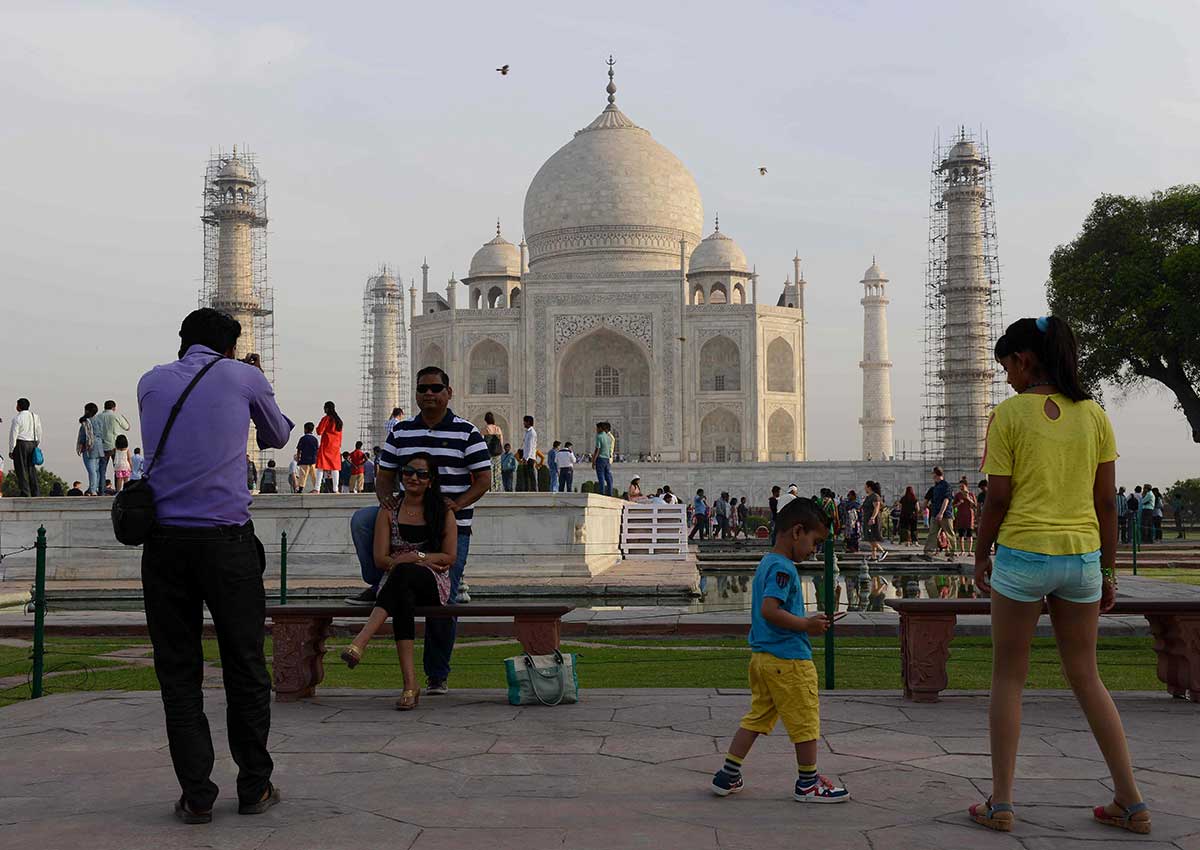LUCKNOW, India – Its gleaming white marble walls have for years been yellowed by India’s air pollution and now the Taj Mahal faces a fresh threat – from green insect excrement.
Authorities have ordered an investigation after green-tinged patches began appearing on the back wall of the monument to love, which stands on the banks of the heavily polluted Yamuna river.
Environmentalists believe the pollutants in the river have caused a rise in levels of algae, which has in turn led to a surge in the numbers of the insects which feed on it.
India’s National Green Tribunal, which hears cases related to environmental protection, raised the issue last week. Now the state government of Uttar Pradesh, home to the world’s most famous tomb, has ordered an inquiry.
“The state government is extremely concerned about this issue. People can rest assured that we will let no harm come to the Taj Mahal,” the chief minister’s spokesman Rajendra Chaudhary told AFP on Monday in the state capital Lucknow.
He said the chief minister, Akhilesh Yadav, had ordered officials to find urgent solutions.
The alert was sounded by environmental activist DK Joshi.
“Three types of insects breeding in the stagnant and polluted waters of the Yamuna flowing behind the Taj Mahal are causing the problem,” he told AFP.
“They’re attracted to the white sheen of the marble and the swarms are leaving behind greenish-black faeces, which is discolouring the ancient monument.” Authorities have taken steps in recent years to try to protect the 17th-century monument from pollution from the nearby busy city of Agra, including banning local coal-powered industries.
The Taj – India’s top tourist attraction – was built by Mughal emperor Shah Jahan as a tomb for his beloved wife Mumtaz Mahal, who died giving birth in 1631.
It has drawn a string of world leaders and royalty including former US President Bill Clinton, while Diana, the late British princess, was famously photographed alone on a marble seat there in 1992.
District officials in Agra said they had not yet heard of the chief minister’s directive but would take any action deemed necessary.






